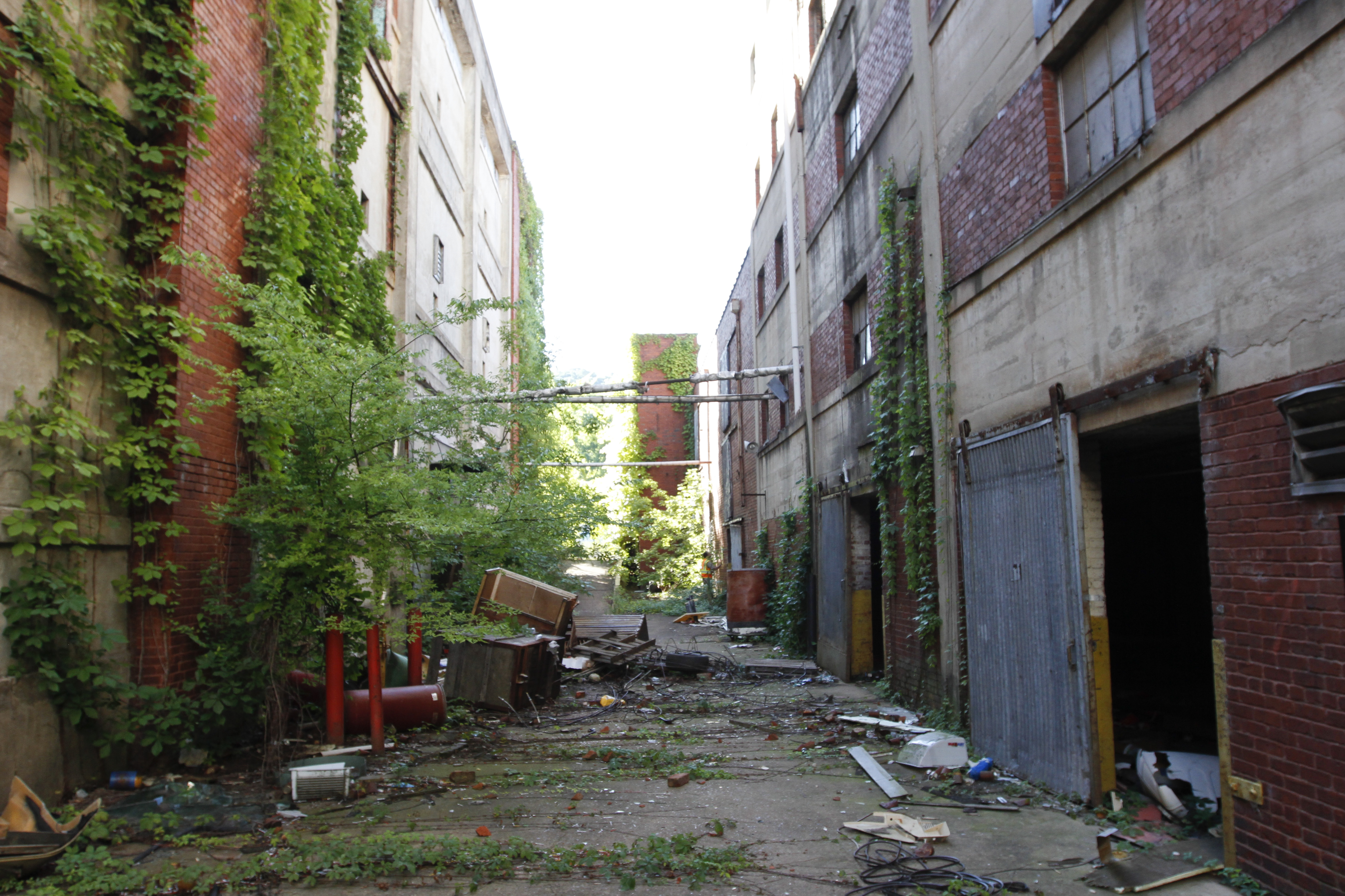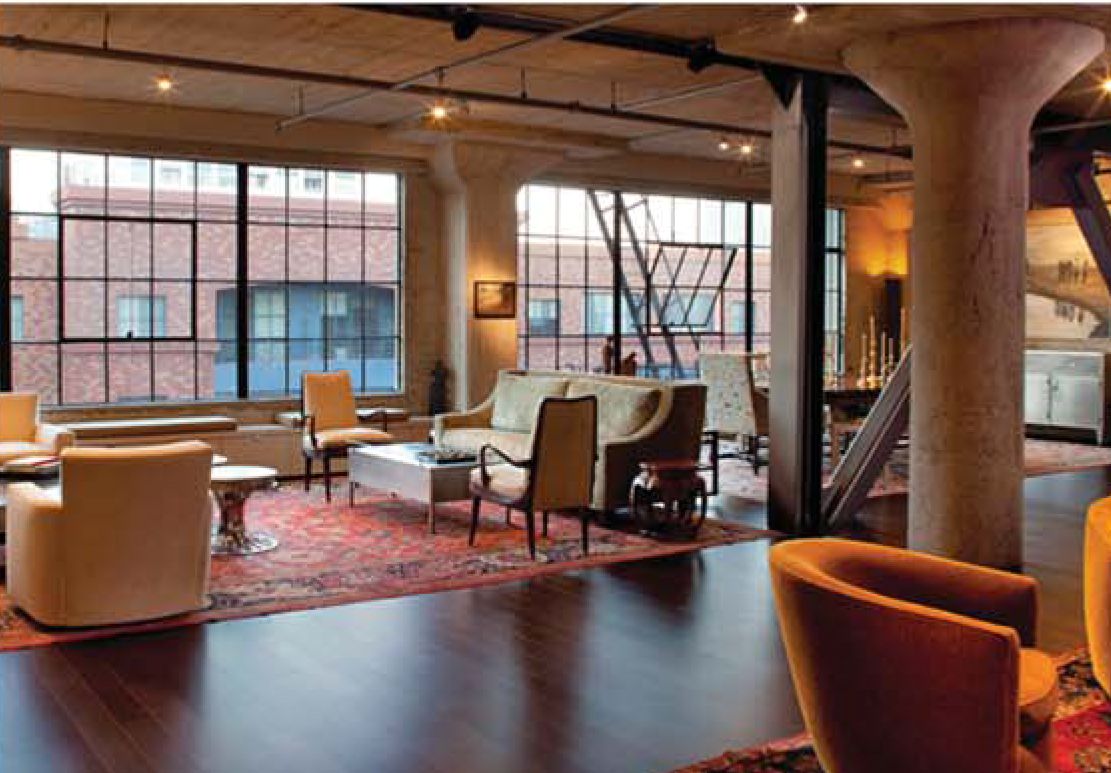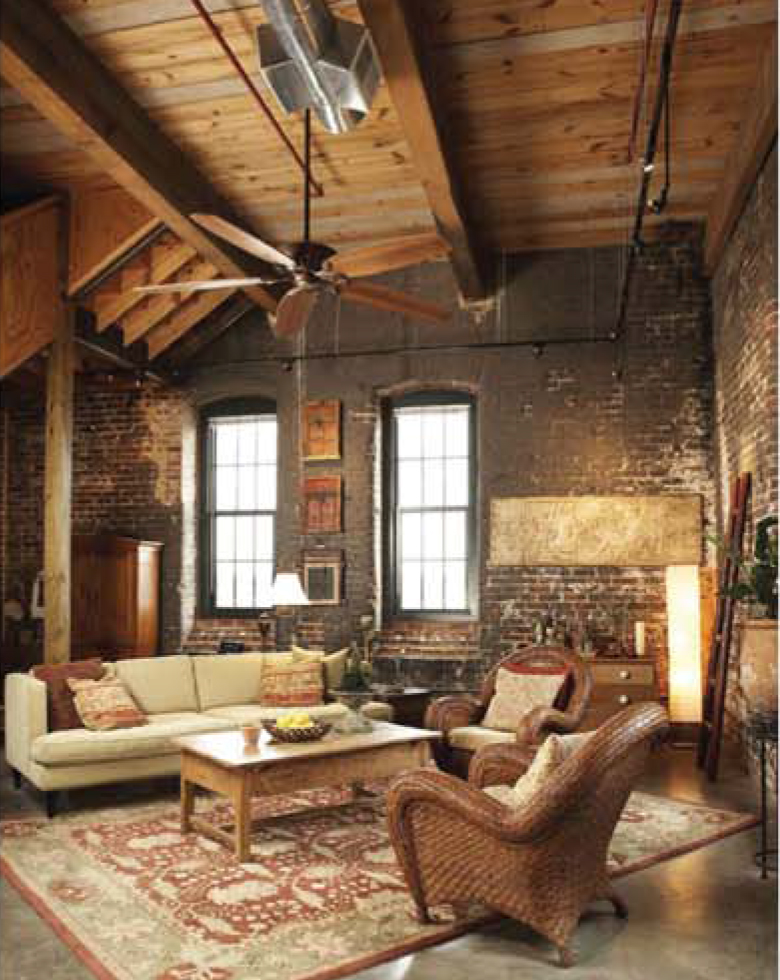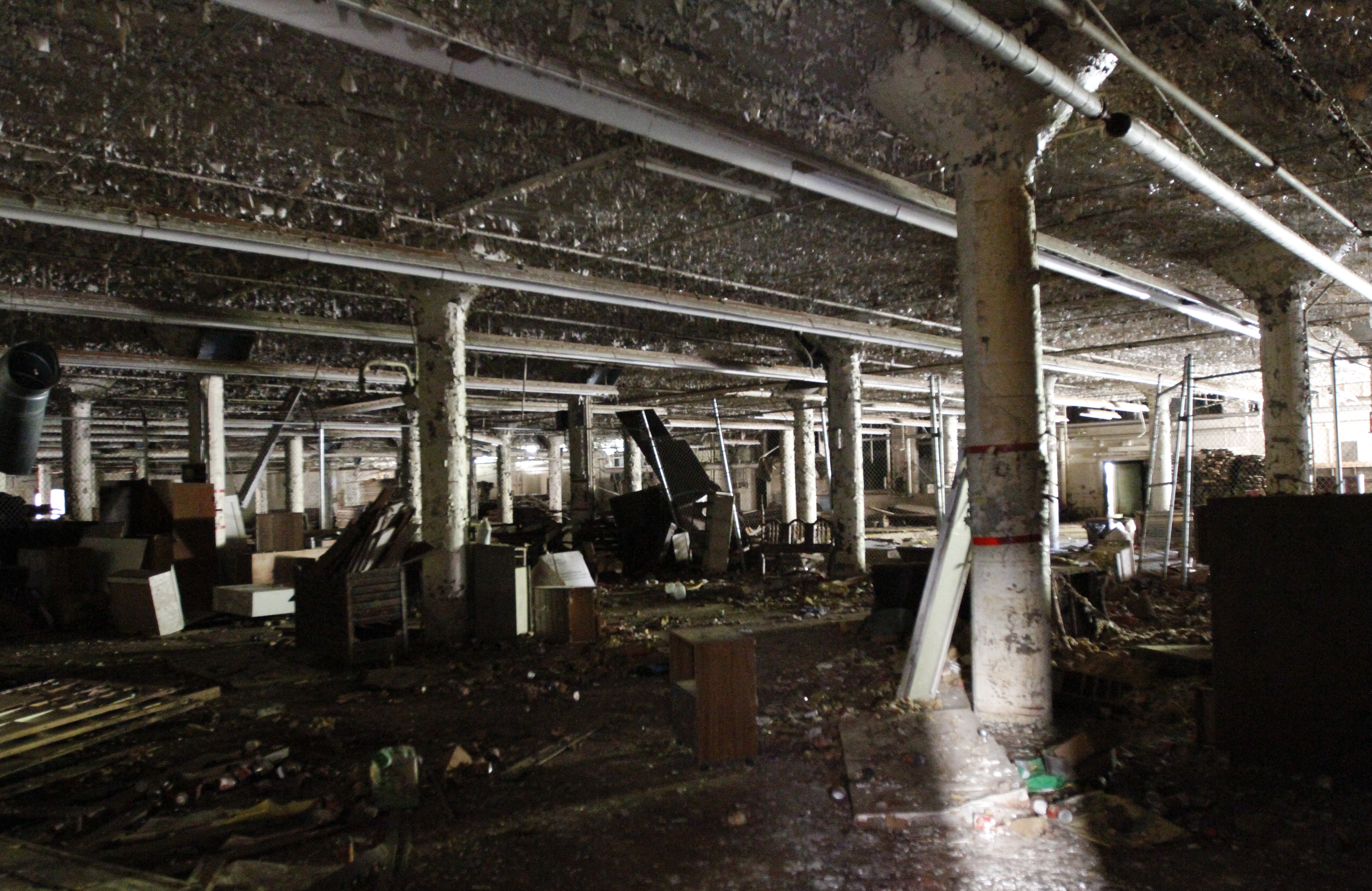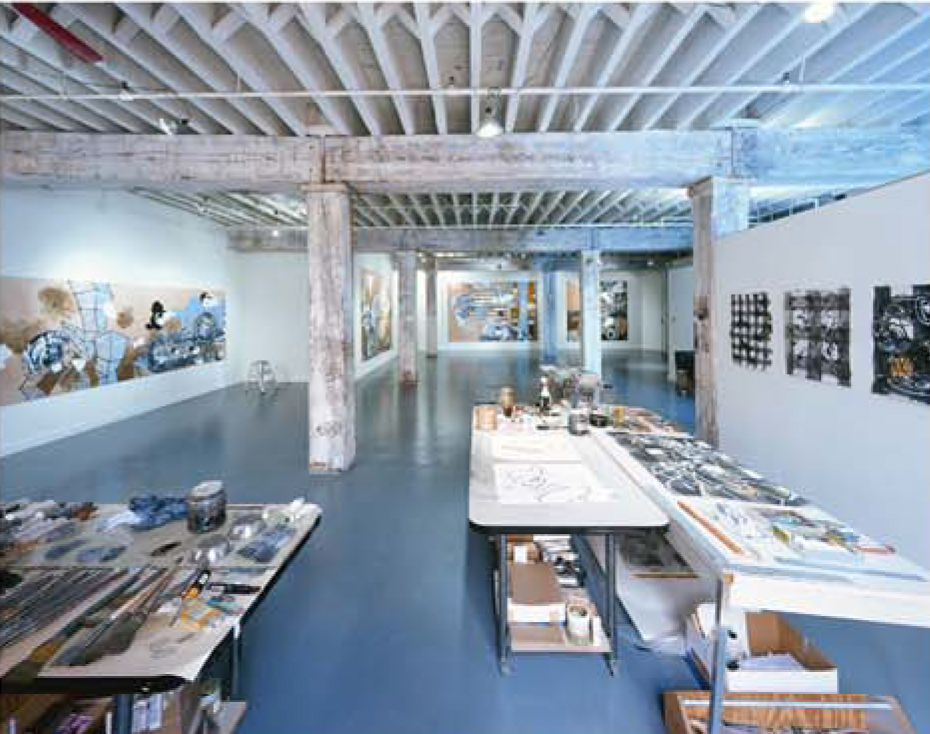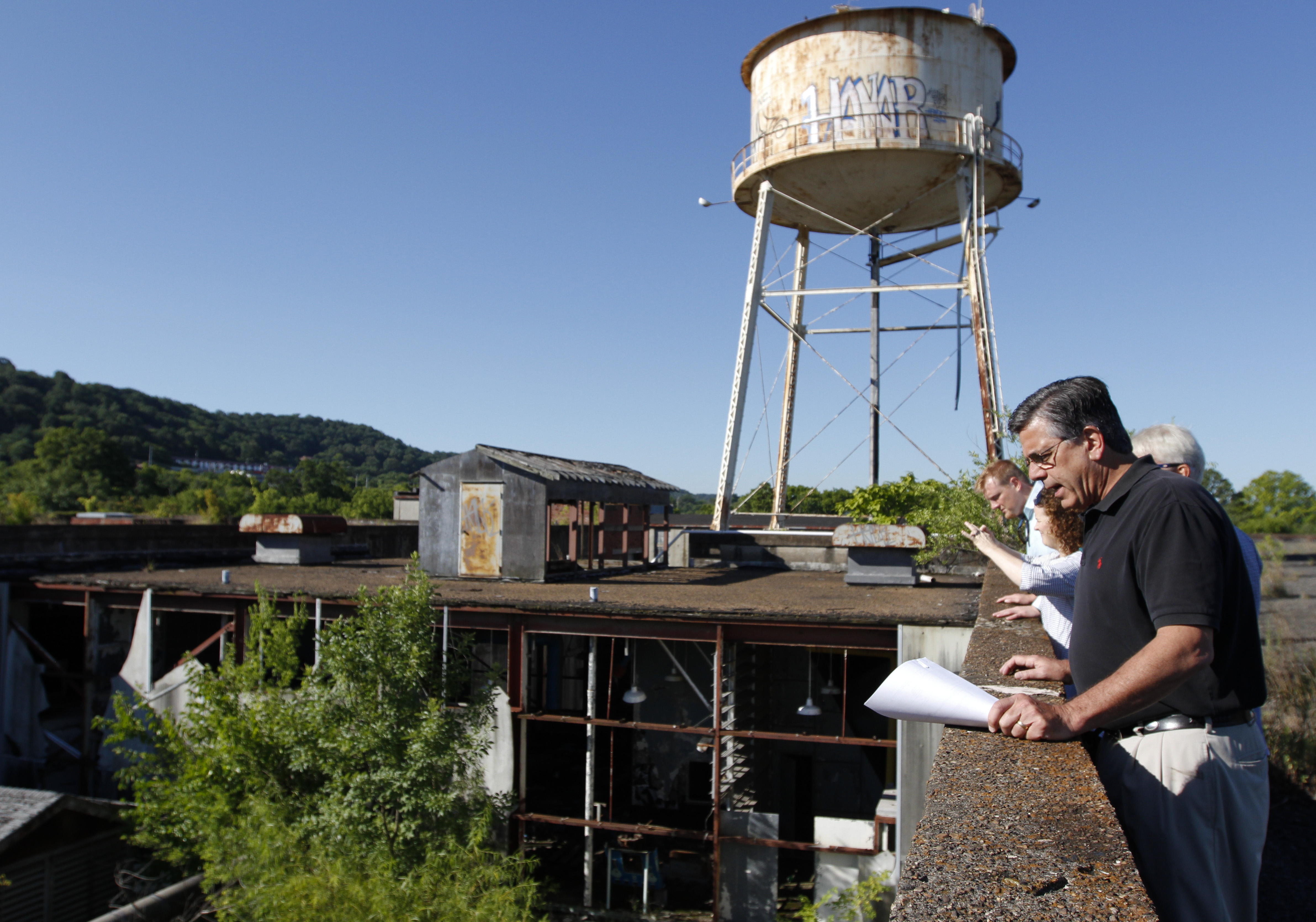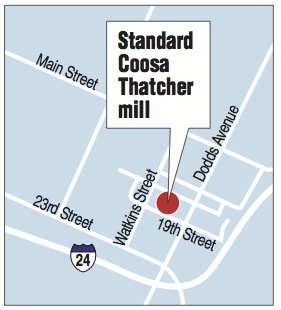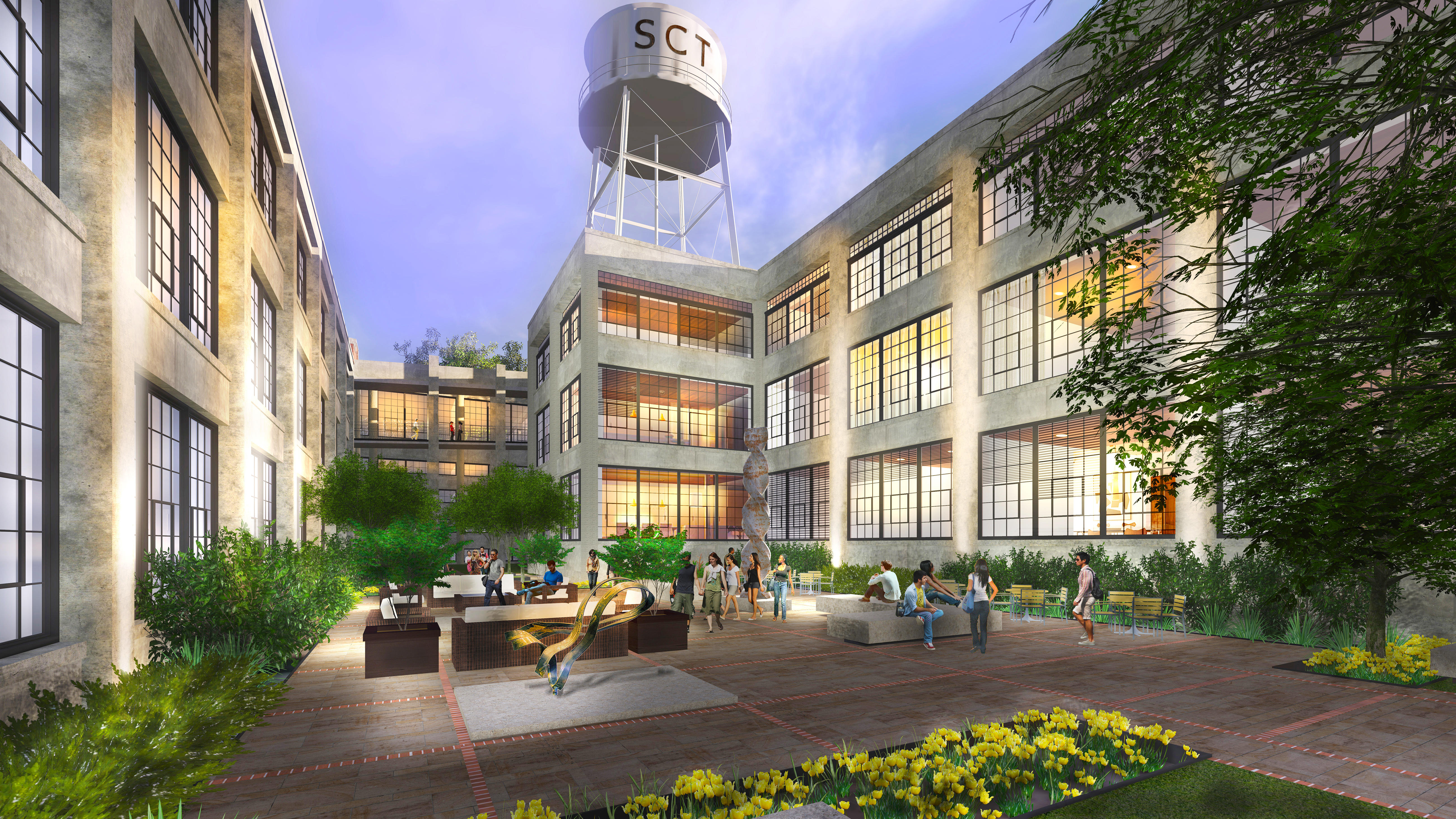Standard Coosa Artist Lofts• Location: 1800 South Watkins Street• Name: Standard Coosa Artist Lofts• Concept: Affordable live/work for artists and families
A blighted Chattanooga community could receive a life-saving injection of new blood if a $35 million apartment complex at an abandoned factory moves forward as planned.
As many as 170 new apartments are planned for the abandoned Standard Coosa Thatcher plant in Chattanooga's east side, a no-man's land tucked between Dodds Avenue and Watkins Street that looks more like East Berlin after World War II than a Scenic City in the midst of an automotive expansion.
Crumbling, sagging homes and collapsed industrial buildings ringed with rusting barb wire date back to the glory days of Chattanooga's manufacturing boom, a time more than two decades ago when the city spun cotton into yarn to feed the burgeoning textile industry.
But that industry crumbled in the face of foreign imports and labor disputes, leading to layoffs, poverty and crime in the area surrounding the 350,000-square foot Standard Coosa Thatcher factory, the thick walls of which today still are littered with spools of cotton and safety warnings.
Where some see decay and hopelessness, a group of developers led by Tim Boyle, president of St. Louis, Mo.-based City Property Co., see opportunity.
"This could bring dynamism back to the community," said Boyle, who is planning to create affordable housing through the Federal Housing Authority. "This will be transformational to the neighborhood. I've found that when you bring economic development to a community, the crime goes out."
After developers knock down a handful of smaller, unusable structures along the property, about 300,000 square feet of apartment space will open up to those who earn up to 60 percent of the median income in the Chattanooga area. That works out to about $23,160 for an individual or $33,060 for a family of four.
The apartments are designed to be a new type of live-work-play community, primarily targeted at artists. A rooftop terrace could allow sweeping views of Lookout Mountain and downtown Chattanooga. An interior garden, planned for the space between the cavernous manufacturing lofts, will give residents a place to read and talk.
A gallery space, dance studio, painting studio, music and rehearsal studio and community spaces are planned.
"Art is a big component of this," Boyle said. "If you give local artists space, they'll figure out what to do with it."
The parking lot next door, on the vacant site of a demolished structure that landed former owner Don Fillers in jail for asbestos contamination, will be fenced off for security.
Much of the building's paint-flecked innards will have to go. The bricked-over walls will come down in favor of large windows. Workers will haul out the pine flooring in favor of polished concrete. The barrels of cotton, though they may later become part of an art installation, will be crated off. The iconic water tower, however, will stay, Boyle hopes, which could help him achieve his goal of registering the mill complex, designed by J.E. Sirrine, with the National Register of Historic Places.
Though the 1917-era site is a challenge, this isn't Boyle's first rodeo. Boyle has been lauded in St. Louis, Mo., for his work revitalizing a number of downtown buildings in the South Grand neighborhood that had seen better days, leveraging tax credits for affordable housing and historic preservation. Boyle has also worked on art-centric projects before, including the ArtLoft theatre and ArtLoft condos.
On this project, currently called the Standard Coosa Artist Lofts, Boyle's City Property Co. will partner with the Michaels Development Co. to help with financing. Headed by Ava Goldman, her New Jersey-based organization has completed a number of multi-million dollar projects from Hawaii to Delaware, and is working to finance the new apartment complex through tax credits.
This affordable housing formula, which requires the owners to maintain affordable housing in the structure for 15 years in exchange for tax credits that can be sold to finance construction, has worked before, officials said. It's a way to create workforce housing without the problems that come along with some types of government housing, said Scott Puffer, vice president of the Michaels Development Co.
"This is not Section 8, this is not Chattanooga Housing Authority, this is a private development," he said. "The downtown area is always going to get investment, but areas like this are the ones that need investment. I suspect that in 15 years, this neighborhood will be transformed significantly."
Rachel Collins, president of the Oak Grove neighborhood association, said she is skeptical that affordable housing is the key to the neighborhood's turnaround. But Collins said rehabilitation of the Standard Coosa Thatcher plant could work it if strikes a balance between affordability and safety.
She lashed out at slum landlords, who she says allow as many as three families to occupy houses meant for one, for the current blight in Oak Grove. The community doesn't need any more of those, she argued.
"I think if they maintain a standard and put in a security system and keep it gated, then you will have people who live there," Collins said. "Don't pretend that you can build a bunch of apartment buildings out in the open and it not become projects. If they're expecting to put up affordable housing that's catering to people who don't work and don't care to work, then it's not going to work."
Still, even a small change would be an improvement from the status quo, she said. Most neighborhood meetings are attended only by herself and two other neighbors, and neighborhood initiatives - such as one where she takes children to the library, Creative Discovery museum and Sports Barn - are ignored by many in the dilapidated community, which she has said is rife with prostitutes, drug dealers and crime.
"If you do it right, you ultimately can get good people in there, people who are working, commuting, going and doing," she said. "I think it would be a great idea, but you better start off on the right foot. Put in a fence, lots of lights, lots of security, and make people feel special about living there."
Developers have organized a neighborhood meeting on Aug. 4, and plan to ask Chattanooga's zoning board to modify the site's zoning from M-1 manufacturing to an urban general commercial district, on Aug. 11. Demolition will likely be underway in 2015, Boyle said.
Contact staff writer Ellis Smith at 423-757-6315 or esmith@timesfreepress.com with tips and documents.

